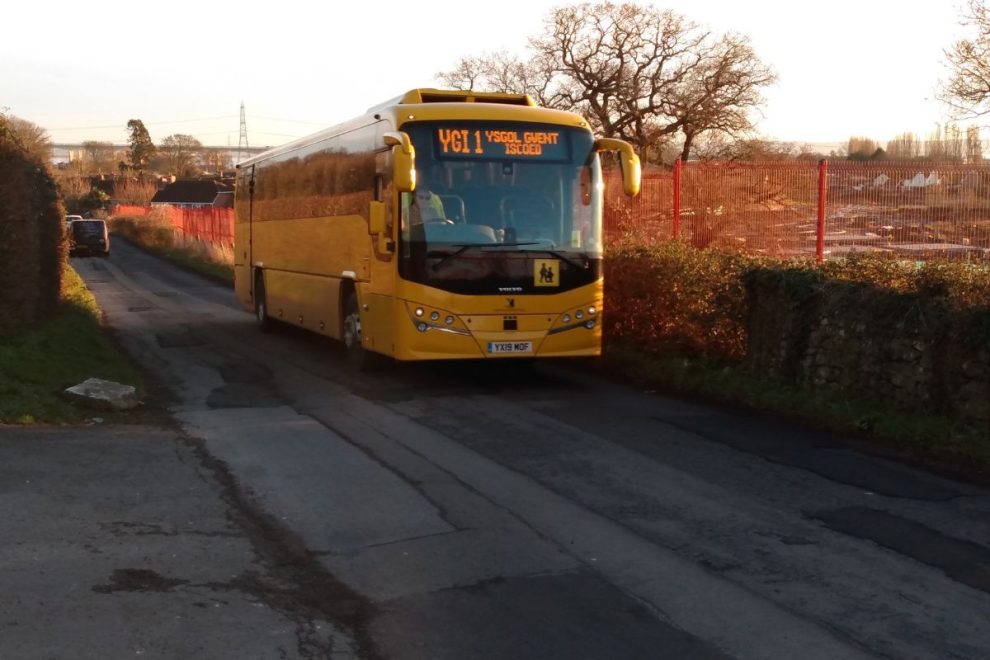PARENTS will not be issued with bus passes to accompany their children when a council ramps up its use of regular bus services for school transport.
Fears that using buses that any fare paying member of the public can hop on or off to take secondary age children to and from school is putting them at increased risk have been dismissed by council officials.
A report prepared for Monmouthshire County Council’s cabinet states: “We will not issue parents with bus passes to travel with their children.”
It notes the Wales learner travel measure, that governs school transport, assumes only primary aged children need to be accompanied by “a responsible officer” and says as there is no plan to use public transport for primary pupils in Monmouthshire the guidance doesn’t apply. Dedicated home to school transport will still be provided for primary age pupils.
Members of the public and councillors had raised concerns over the plans to issue bus passes to secondary school pupils, who qualify for free transport, to use on regular bus routes under the council’s updated home to school transport policy for the 2024/25 academic year which must be confirmed by October 1 this year.
The Labour-led cabinet will consider the policy when it meets on September 6 but transport officer Debra Hill-Howells’ report said fears over the use of public transport are unfounded: “Our experience to date is that travelling on public services does not increase the risk of safeguarding incidents, although we appreciate that parents and carers may hold that perception.”
The council has said it will work “closely” with bus companies “to monitor the behaviour of passengers and review safeguarding measures and transport methods where substantiated concerns arise” as well as on timetabling to ensure youngsters can arrive at school on time.
The report also states the council scrutiny committee was informed of 23 reported safeguarding incidents during the 2022/23 academic year only one related to pupils allocated season tickets on buses also used by the public.
The council currently spends around £6 million a year on home to school transport, which is expected to increase again this year after contracts were re-tendered, and using public transport is in line with Welsh Government policy though the authority will see a drop in income from concessionary passes which parents will now buy direct from bus companies.
Free transport will be provided to learners attending their nearest faith school so long as they meet the council’s standard distance eligibility which remains at journeys of 1.5 miles or more for primary pupils and two miles for secondary pupils, which is more generous than statutory distances.
The council will also take into account whether pupils meet the school’s faith admission criteria regardless of whether it was used by the school in considering admission.
The council is standing by its policy despite comments from parents and faith schools that the proposed drafting is “too narrow” while Cytun Cymru, which represents Welsh churches, and a parent, proposed eligibility criteria for faith schools should be amended to include “the learners application having been made on grounds of faith or conscience”.
This was dismissed by the council which said it has no legal requirement to provide transport to faith schools and that there is no objective mechanism to assess “conscience”.
It has also said it is has recognised concerns over a lack of guaranteed travel for post 16 students which is a particular problem for students attending Welsh medium or faith schools out of county and as a result has agreed if parents apply for post 16 concessionary travel for Welsh medium or faith learners who are attending their nearest suitable school it will ensure they are able to access home to school transport.
Other comments made during the consultation were a suggestion that students and bus drivers should be encouraged to greet each other in languages other than English, including Welsh and other European languages and Chinese dialects with themes such as ‘Mandarin Mondays’ and ‘Francais on Fridays’.



















